2020 by Koritha Mitchell
All rights reserved
Library of Congress Cataloging-in-Publication Data
Names: Mitchell, Koritha, author.
Title: From slave cabins to the White House: homemade citizenship in African American culture / Koritha Mitchell.
Other titles: Homemade citizenship in African American culture
Description: Urbana: University of Illinois Press, [2020] | Series: The new black studies series | Includes bibliographical references and index. |
Identifiers: LCCN 2020005316 (print) | LCCN 2020005317 (ebook) | ISBN 9780252043321 (cloth) | ISBN 9780252052200 (ebook)
Subjects: LCSH : American literatureAfrican American authorsHistory and criticism. | American literatureWomen authorsHistory and criticism. | Women and literatureUnited StatesHistory. | African American women in literature. | African Americans in literature. | African American womenIntellectual life. | African American womenSocial life and customs. | African AmericansRace identity.
Classification: LCC PS 153. N 5 M 575 2020 (print) | LCC PS 153. N 5 (ebook) | ddc 810.9/896073dc23
LC record available at https://lccn.loc.gov/2020005316
LC ebook record available at https://lccn.loc.gov/2020005317
For the ancestors.
May we truly see the evidence you left.Acknowledgments
I have lived with this project for several years, and many people have helped me sharpen my thinking along the way. This book benefited from every single encounter, despite my inability to name each one.
First, I thank two people who wouldnt let me stay discouraged when I encountered obstacles: Dawn Durante and Tanya McKinnon. Dawn and I hit it off in 2011, when Living with Lynching emerged, and she has continued to help me see the value of my contributions. Youve been an important voice in my head, and Im grateful. Even after a storm in her own life, Tanya helped me weather the storms that threatened this project. Thank you for modeling grace.
The profession is full of scholars who inspire me. It is a special gift when some of those people provide guidance and intervene on ones behalf. For me, those people include Robert Reid-Pharr, Barbara McCaskill, Harvey Young, Mark Anthony Neal, John Ernest, Martha S. Jones, Carol Anderson, Margo Crawford, and John L. Jackson Jr. Thank you for making the time.
I gladly acknowledge my debt for an early intervention from Gabrielle Foreman. I began presenting on Michelle Obama in 2011, but I somehow never saw that material as part of this study. Gabrielle convinced me that was a mistake. I remain grateful you did.
Some of this projects earliest interlocutors came my way because colleagues invited me to speak at their institutions. In this regard, I am especially grateful to Lindsay Reckson, who brought me to Haverford College to interact with an engaged audience from around the Philadelphia area. Graduate students at the University of Chicago invited me for a seminar. They were encouraged by Adrienne Brown, who made my visit memorable. Similar opportunities facilitated by Magdelyn Hammond Helwig at Western Illinois University invigorated me. Magdelyn assembled various groups whose questions helped my thinking for months. (Shout out to Maurine Magliocco, Timothy Helwig, and Shazia Rahman.) Also important for my thinking during this projects gestation was a remarkable visit to Texas Christian University, organized by Theresa Gaul.
I had generative conversations about this material with audiences at Dartmouth College, Bowdoin College, and during two visits to Brown Universityone sponsored by the Pembroke Center for Teaching and Research on Women and one sponsored jointly by the Center for the Study of Race and Ethnicity in America and the Department of American Studies. I am especially grateful for intellectual engagement from Kevin Quashie, Tricia Rose, Matt Gutterl, Naoko Shibusawa, Adrienne Keene, Elena Shih, Ralph Rodriguez, Monica Muoz Martinez, Leticia Alvarado, and Dixa Ramrez. The timing of those conversations made a real difference. Also linked to this fruitful time were my interactions with Leela Gandhi and Diego Millan. And Im still in awe of the intellectual rigor and generosity offered by Tess Chakkalakal and Judith Casselberry during my visit to Bowdoin.
At crucial moments that made more of a difference than I can say, scholars I deeply admire made time to read portions of the book manuscript. For their thorough and constructively critical feedback, I am forever grateful to Sharon Holland, Brittney Cooper, and Evie Shockley. Likewise, I have grown from valuable conversations with, and exceptional support from, Robin Bernstein, Kyla Tompkins, Salamishah Tillet, and Brian Herrera.
Many thanks to Christopher Morris for research assistance and to readers I sought for particular chapters, including Adlk Ad

k

, Brian McHale, Katherine Marino, and Cathy Hannabach. I am also grateful to the various anonymous manuscript reviewers. Every reaction helped me make the work stronger.
Also, though circumstances prevented this project from being the main one I worked on while in residence at the Notre Dame Institute for Advanced Study, the Institute supported it with a fellowship, affirming in both intellectual and material ways my belief in its importance. The people who made my year at Notre Dame special include Jarvis McInnis, Perin Grel, Alex E. Chvez, Paul Ramrez, Haruko Hal Momma, Tia Madkins, Rufus Burnett, Korey Garibaldi, Ztoile Imma, Dianne Pinderhughes, and Greg Laski.
As anyone who knows me can attest, I would not be in the profession if it were not for the Ford Foundation Fellows community. You helped me through another monograph. Thank you. Over the years, the intellectual community that has entered my life via the Black Performance Theory working group has attempted to make me a more limber thinker. Im still trying. Much gratitude to the many artists and scholars who have helped me develop through Callaloo conference gatherings. My work has been forever changed because of those encounters. In recent years, Ive been inspired and energized by connections with the sisters of ABWH (Association of Black Women Historians), Zoras House, and #CiteBlackWomen. Rock on!
And, of course, I could not have endured all the ups and downs of this project without friends and family. Craig Jones, I remain in awe of your support and grateful for your wicked sense of humor. Carie Brown, you helped me through some of my darkest days, empowering me to do this work. What a joy to have you in my life, benefit from your impact on my life, and witness the many ways you do the same for others. Leila Ben-Nasr, our get-togethers have seen me through this entire process and much more. Laverne Mitchell, you remain my most consistent and committed interlocutor. You are behind every word Ive ever written, and it is a privilege and an honor to say so.
From Slave Cabins


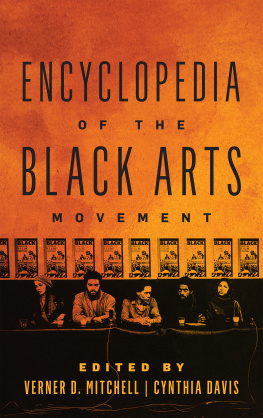
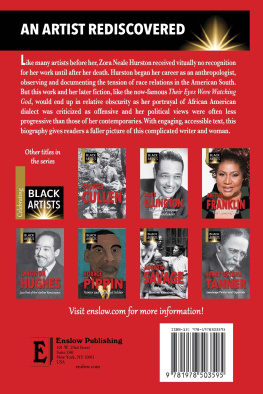
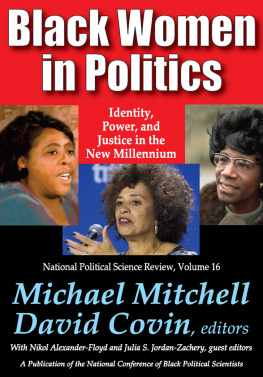

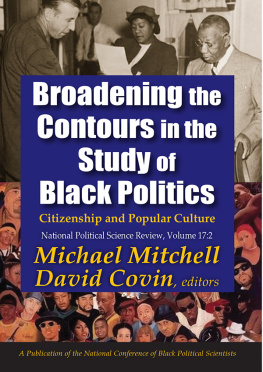
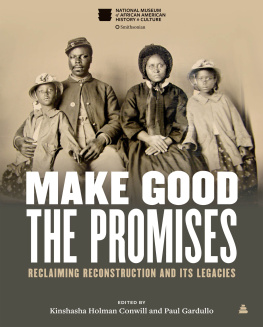
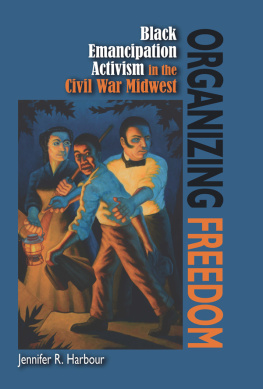


 k
k , Brian McHale, Katherine Marino, and Cathy Hannabach. I am also grateful to the various anonymous manuscript reviewers. Every reaction helped me make the work stronger.
, Brian McHale, Katherine Marino, and Cathy Hannabach. I am also grateful to the various anonymous manuscript reviewers. Every reaction helped me make the work stronger.